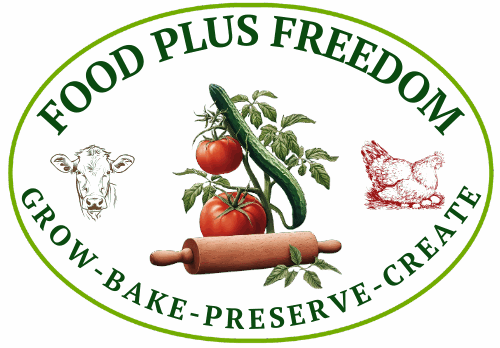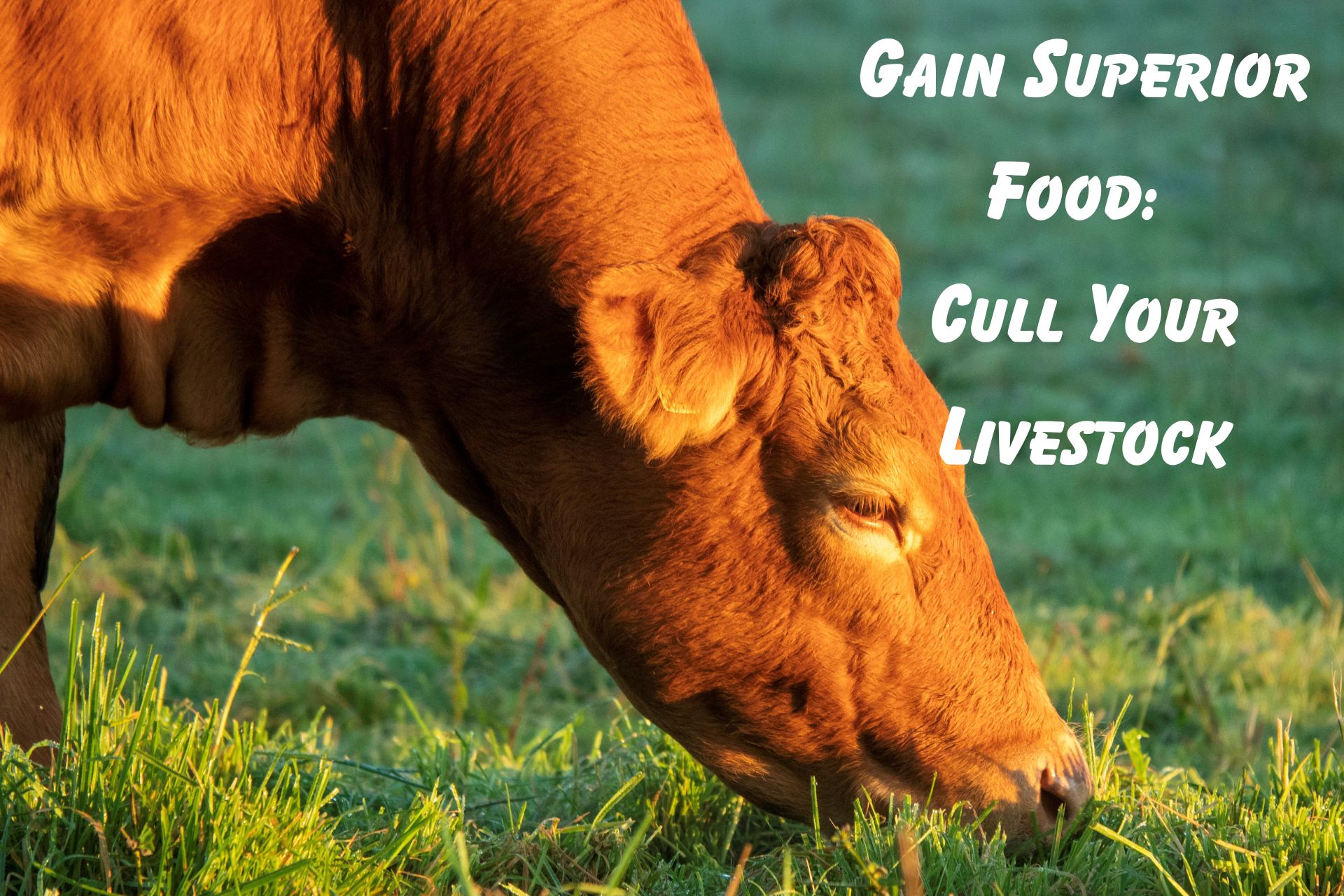How does culling your livestock give you superior food?
Before we get started into how culling gives you superior food, let’s discuss what culling means. Typically, the term culling refers to livestock. However, the philosophy of culling can determine what you want for your garden as well.
Culling is the process of getting rid of undesirable traits in animals and plants on your homestead. By getting rid of undesirable traits, you create healthier animals and food for yourself.
Culling Livestock
The best way to strengthen your livestock is to get rid of genetic traits you do not want to duplicate. In order to accomplish this, you must look at your animals and decide what important traits you want and don’t want on the homestead.
Evaluate each type of animal you have and if it’s a specific gene, characteristic, or mannerism you don’t want on your premises. Some evaluate solely on what an animal looks like, as in their colors. I evaluate by purpose, health, behavior, and safety.
For instance, if you have five goats and one is always jumping your fence, no matter what you do, and the rest don’t. Get rid of the one goat that is the issue. If they are all jumping your fence, then you have a fence issue that isn’t made for the goat.
You could try reteaching the animal to stay in the fence, but from my experience, this curiosity of getting out of things seems to pass onto some of their offspring.
By culling, you’re getting rid of traits. You may not get rid of all of them, but you aren’t reproducing undesirable situations.
Evaluating Animals For Culling
We evaluate our animals based upon if they fit into the homestead, have purpose, and are doing their job. Plus some traits we want the animals to have, such as horns or no horns, for our cows.
- Does the animal fit its purpose on the homestead? Every livestock on your property needs to have a purpose. Is it for meat, milk, bug control, soil, pasture management, entertainment, etc? If it has a purpose, then keep it. If it doesn’t, harvest or sell it to someone who has a purpose for the animal.
- Does the animal interact with nature, humans, and other animals without issues? If we have a mean animal, they are gone. The extra stress from mean animals isn’t worth it.
- Do the females get bred, carry, deliver, and care for their offspring on their own? You want all of our animals to act like that specific species. You want each animal to need the least amount of intervention as possible. Humans have domesticated animals to the point they can’t be animals. When animals take care of reproduction and raising, you are the bystander and helper, not the primary caretaker. Work with nature, not against her, for sanity and peace.
- Does the animal complete their purpose? For instance, does the chicken lay the expected number of eggs a week? Does the cow give milk? Does the goat eat the pasture and stay in the fences, etc.? When animals don’t fit the purpose you intended, it’s time for them to go. Unless of course, you find another purpose for them.
- Does the animal fit into your homestead environment? If they don’t, they need to go. We no longer raise pigs. We like the meat, but they didn’t fit into our homestead, which made it stressful. Instead of raising our own, we buy from a local homesteader that raising the meat as we would.
Just because an animal type, such as a pig, cow, goat, etc. doesn’t fit into your homestead, doesn’t mean you can’t get that meat from a reliable source.
Occasionally we keep an animal that doesn’t fit into our purposeful homestead and they become a pet. Then that animal gets amnesty to live out their life in luxury until they die naturally. Having livestock as pets is a very expensive situation, and doesn’t fill your freezer or your pantry. I don’t suggest it often, but sometimes it does happen.
What To Do With Culled Animals?
Once you’ve decided which animals you will not keep or breed for the next year, you need to get rid of them. It makes no sense to feed livestock that aren’t producing. You waste a lot of time and money. Depending on why you are culling, an animal will dictate what to do with them.
Animals that are not needed on your premises should be sold off to others who can use them. For instance, we sell off our calves each year because we are at capacity and they would have no purpose here. These calves are sold around six months of age to someone else who wants meat or breeding cows.
We’ve sold off all of our horned cows, because they no longer fit on our homestead. They went to homes where the people wanted horned animals. This is the case of the animal not fitting, not the animal being an issue. Every few years, we get rid of our older laying hens. Usually, we harvest them for extra meat. Occasionally, we will sell or give them to someone who is starting a flock with full disclosure on their age and they may not lay or live for years more. We can not guarantee the older chickens will lay or how long they will live.
Animals that have been problem children should not be sold or given to another homesteader. Why give someone else your issues? You want people to trust you and create a community with you, in case you need something in return. You also don’t want a new homesteader to get frustrated, because the animal was an issue. If you have the wrong set up, it is not an animal issues, it’s a human issue. I am talking about animals that are uncontrollable, or have bad traits.
For instance, several years ago, we had a steer that liked to climb over fences. By the time he was 18 months old, there wasn’t a pasture or spacious barn area that would hold him. We ended up locking him into a box stall for several days until we could get him into the butcher. We usually raise our beef about 28 months, so he wasn’t slotted to be processed. Upon leaving the butcher’s, this steer had climbed the holding area trying to get out.
If the situation is a pain in your rear, don’t give it to someone else.
By evaluating and culling your animals each year, you gain the best fit livestock for your homestead. Plus, you gain healthy meat you’ve raised yourself, with the least amount of stress possible.

